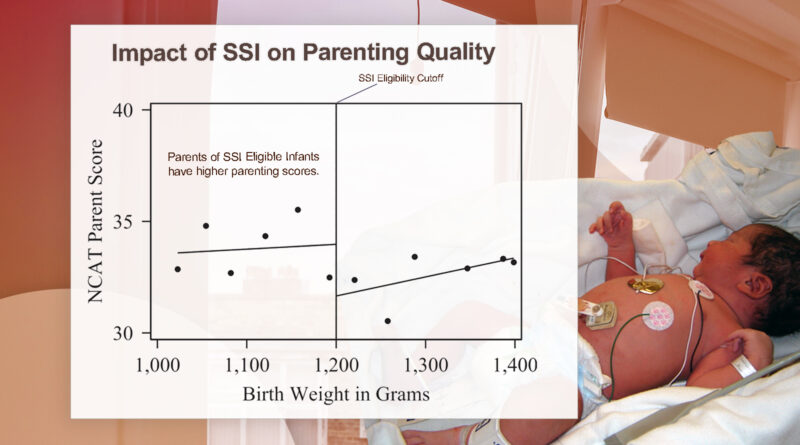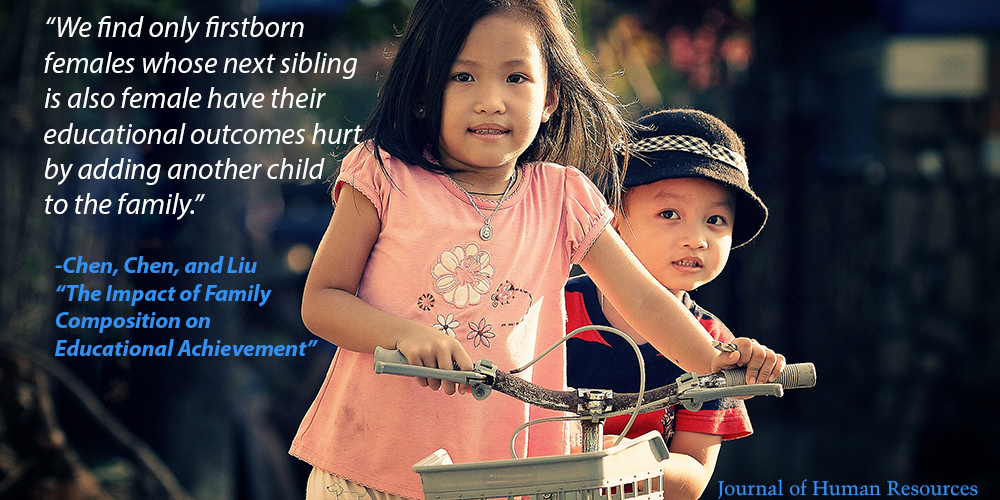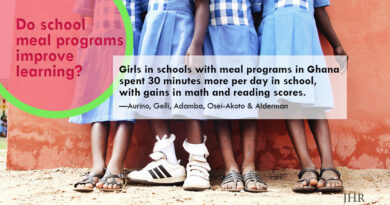Less Work, More Baby Hours—Cash Transfers for Low Birth Weight Infants Reduce Parental Hours Worked and Improve Parenting Quality
Children born to mothers of lower socioeconomic status experience worse outcomes than children whose mothers have more resources. Economic hardship makes it hard to provide for kids not only physically but also emotionally, since stress from financial struggles can lead to less supportive parenting practices.
If parents reduce their work hours after having a child, they may have more time for parenting, which can improve outcomes. But that also comes with potential harm from decreased income. Given this dilemma, cash transfers could allow for time with a new baby with less of a monetary trade-off.
Researchers Melanie Guldi, Amelia Hawkins, Jeffrey Hemmeter, and Lucie Schmidt explore whether or not and how cash transfers for low birth weight (LBW) infants through the Supplemental Security Income (SSI) program alter parents’ work hours and the infant’s early childhood environment. SSI targets low birth weight infants due to their higher risk of health complications. The researchers show that infants with birth weights under 1200 grams (2 pounds, 10 ounces), who are medically eligible for SSI, are more likely to receive SSI than slightly heavier infants.
The researchers then assess the impact of eligibility for the cash transfer. They find that while the low birth weight infants’ mothers do not stop working, they shift from full-time to part-time work. Additionally, they find that the quality of parenting behavior, measured through the Nursing Child Assessment Teaching Scale, significantly improves. This means parents score higher on abilities such as sensitivity to children’s cues and fostering cognitive growth.
These findings suggest that cash transfers can help to ease the resource constraints faced by mothers of vulnerable infants and can improve parenting behaviors. Since families with children with disabilities have been shown to experience above average rates of stress, these results may be of particular policy relevance.
Read the article in the Journal of Human Resources: “Supplemental Security Income for Children, Maternal Labor Supply, and Family Well‐Being. Evidence from Birth Weight Eligibility Cutoffs,” by Melanie Guldi, Amelia Hawkins, Jeffrey Hemmeter, and Lucie Schmidt.
***
Melanie Guldi is Associate Professor of Economics at the University of Central Florida and a Research Fellow at IZA (@MGuldi, @mguldi.bsky.social). Amelia Hawkins is Assistant Professor of Economics at Brandeis University (@aaehawkins). Jeffrey Hemmeter is Deputy Associate Commissioner at the Social Security Administration Office of Research, Demonstration, and Employment Support. Lucie Schmidt is the Robert A. Woods Professor of Economics at Smith College and a Research Associate at the National Bureau of Economic Research (@LucieGSchmidt, @luciegschmidt.bsky.social).




